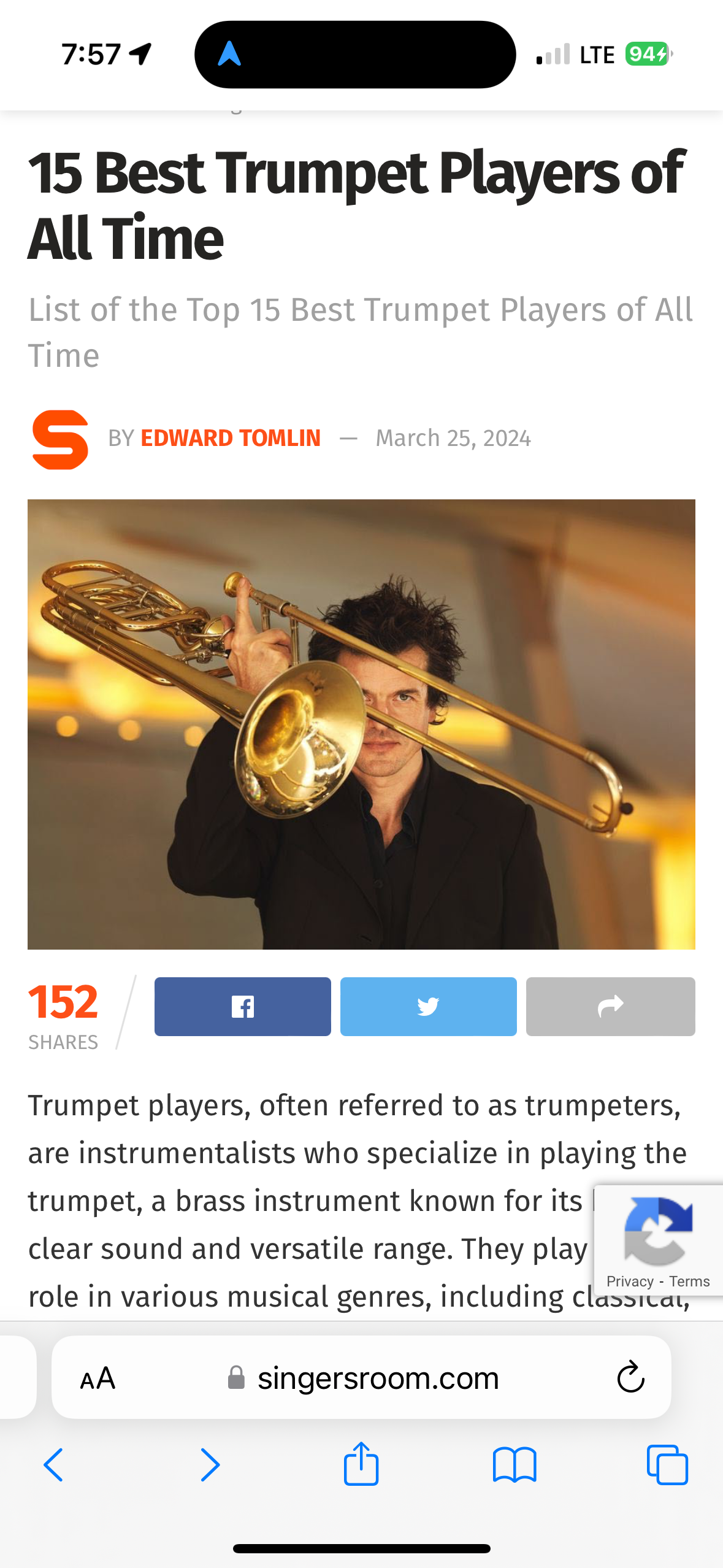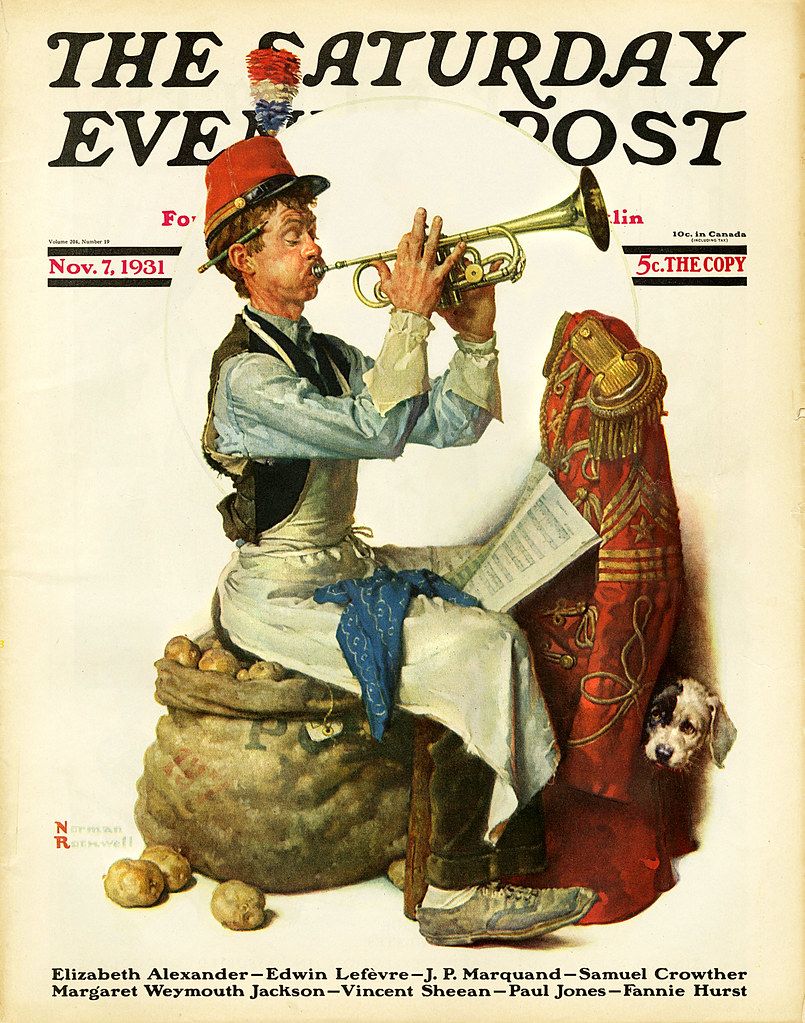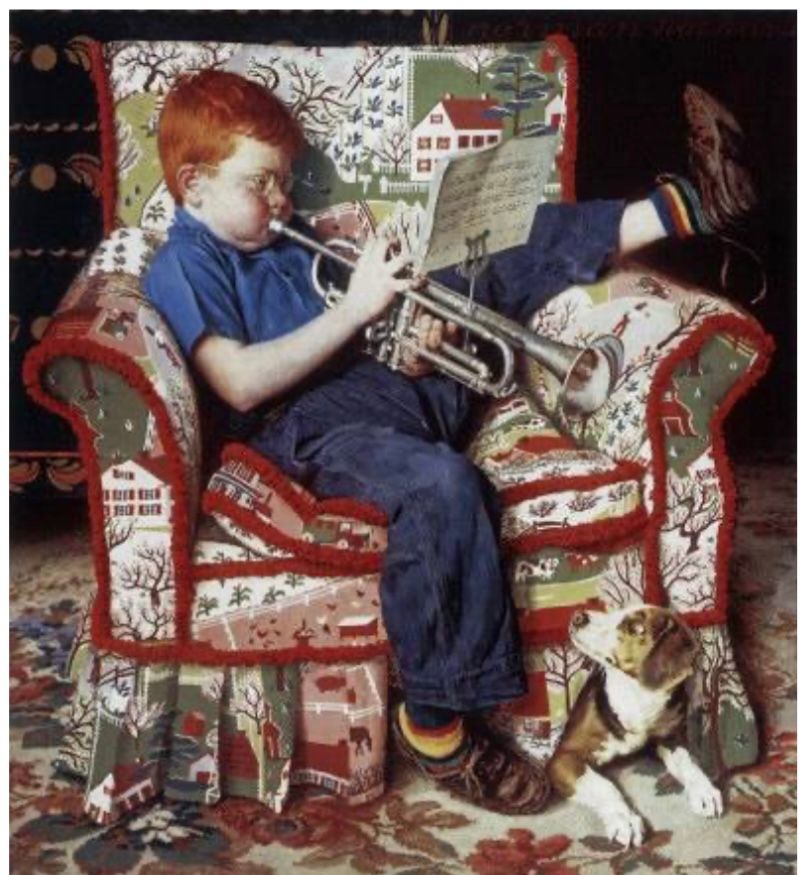In the interview Alison Balsom talks about the Wynton Marsalis Trumpet Cocerto. Here is a sample of it, followed by a review of her outstanding performance.
Posts made by SSmith1226
-
RE: Interview with Alison Balsomposted in Classical / Orchestral
-
RE: Subcontrabass Trumpetposted in Bb & C Trumpets
@robertwerntz said in Subcontrabass Trumpet:
@SSmith1226 ha! What do they keep Aphorns in!

@barliman2001 said in Subcontrabass Trumpet:
@robertwerntz Alphorns can be dismantled into small pieces!



-
Interview with Alison Balsomposted in Classical / Orchestral
In an interesting interview with Alison Balsom, when asked, “What does it take to succeed on this instrument?”, she answered, “It’s incredibly physically demanding to play the trumpet, and it’s not like weightlifting – it’s like dancing. You have to be really strong, and graceful and supple in that strength. But also, the muscles in your embouchure” – the position and use of the lips, tongue and teeth while playing – “are so small that it doesn’t take much for your lip to be gone – and then no notes will come out. The idea of walking on stage in front of an amazing orchestra and a full audience, but knowing that at any minute something might happen and you can’t get another note out – it’s a high wire act. You’ve got to stay calm. It takes a certain sang-froid in your personality to handle that pressure.”
A link to the rest of the interview:
https://inews.co.uk/culture/music/alison-balsom-interview-classical-music-2993333 -
Subcontrabass Trumpetposted in Bb & C Trumpets
Any suggestions for a case for my new horn?
Youtube Video -
RE: How about a "Random Meaningless Image...let's see them string"?posted in Lounge
This is the license plate frame of a car I parked next to this evening. I will never think of knitting in the same way.

-
Happy Birthday Barliman2001posted in Lounge
Happy Birthday to Barliman2001. Performance of “Baggins Birthday Blues” by Moanin’ Mo Baggins.
-
RE: Trumpet Based “News” Articleposted in Lounge
@Trumpetb said in “Trumpet Based” News Article:
I have to confess that right now I blow big time, but I am confused if instead I should be trying to suck if I want to improve.
Can any member help me out on this.
Should I suck or should I blow, or does it even matter
Any help and advice from other members who suck and other members who blow, would be greatly appreciated.
The short answer, FWIW, in my opinion, is continue to “blow big time”.
In my eight years of comeback, I have been a firm proponent of blowing . According to a summary of a discussion on Physicsforums.com, “blowing and sucking are very different processes with different physical mechanisms at play. While blowing involves directing and maintaining the momentum of air in one direction, sucking requires reducing pressure and drawing air in from all directions. This difference can also be seen in the design and functionality of mechanical devices. Additionally, human anatomy plays a role in the strength and ease of blowing and sucking, with the diaphragm being a key factor.”
In the case of Trumpet playing, both processes initiate the action in question with the stimulation from the Phrenic Nerve to actuate movement of the Diaphragm, in a downward motion to suck, and an upward motion to blow. In order to suck efficiently the abdominal, chest wall, and back muscle groups must relax, thus reducing external compressive forces on the Diaphragm and Lungs. However, in the case of Blowing, these same muscle groups contract in an organized fashion to create compression that augments the Blow and makes it far more efficient and effective than the Suck.
Therefore my opinion, as a comeback amateur trumpet player, for a Trumpet Player to do one’s job, continue to Blow, otherwise, you will Suck for sure. -
RE: Trumpet Based “News” Articleposted in Lounge
I wholeheartedly agree with both of our esteemed Global Moderator’s observations and opinions. I was actually thinking of putting those two points in my initial post, but modesty kept me from doing so, especially since Rick Martin (J Jericho) and Double E (Barliman) were not on the list either.
-
Trumpet Based “News” Articleposted in Lounge
I came across an “interesting” article. I’ll share a screen shot of the article, as well as a link to it. It reads as if it has been written by AI. The first paragraph reads “Trumpet players, often referred to as trumpeters, are instrumentalists who specialize in playing the trumpet, a brass instrument known for its bright, clear sound and versatile range. They play a vital role in various musical genres, including classical, jazz, pop, rock, and marching band, and their contributions to music are celebrated for their virtuosity, expressiveness, and powerful performances.”
I would also speculate that the initial photograph between the title and the beginning of the article is likely the choice of a Bot as well. In case you wanted to know, the photograph is of Stephen Schulz, a Bass Trombonist of the Berliner Philharmoniker. A link is also included below.

https://singersroom.com/w42/best-trumpet-players-of-all-time/
-
Trumpet Conference In Lagos Nigeriaposted in Lounge
On March 13 and 14, a Trumpet Conference was held in Lagos, Nigeria. If you are interested in reading about this, the following links announce the conference and report on it. If “Seth of Lagos” attended or has knowledge of the conference, perhaps he can comment on it.
https://punchng.com/lagos-trumpet-conference-set-to-educate-trumpeters/
https://punchng.com/victor-ademofe-olabisi-julius-others-speak-at-trumpet-conference/
-
An Eye Opening Experience Concerning The Secondary Instrument Marketposted in Lounge
I had an interesting eye opening experience today purchasing a mouthpiece advertised on the “Trumpet Herald Marketplace” that would apply to purchases on our site, eBay, and others where private individuals sell used items, such as instruments, accessories, etc.
The price was fair and no negotiation was necessary in my purchase, other than the method of payment. The seller of the item requested “PayPal Family and Friends”. As you know, under these circumstances there is no protection of the buyer. I counter-offered to add a 3% surcharge to cover the PayPal fees. This however was not the issue. The seller was concerned that PayPal would have to report this sale, of a used mouthpiece, in combination with his other sales, to the IRS as income. My initial thought was that this was a “tall tale” (c&b story) created to deceive me. My gut feeling was to walk away from this transaction, but first I researched it and found out that his concern was accurate. After researching it I found that if “you have a side hustle where you buy items and resell them for a profit via PayPal or another digital payment app, then earnings over $5,000 will be considered taxable and reported to the IRS in 2024.”In the near future this will drop to sales over $600 for the year.
Those of us selling used equipment at a loss will have to show documentation of the loss in order to avoid income tax on these sales. I myself am going to list a half dozen or more high end used instruments in the near future that I no longer play. I foresee a major headache when this happens even though there will be no profit involved. This issue not only complicates the seller’s transaction but adversely affects the buyer’s side of the transaction. For those interested, the following is a link to a complete explanation of the current status of this problem:
https://www.cnet.com/personal-finance/taxes/1099-k-irs-delay-what-paypal-venmo-and-cash-app-users-need-to-know-this-tax-season/ -
The Icon and the Upstart: On Miles Davis’s Legendary Feud With Wynton Marsalisposted in Jazz / Commercial
A very interesting story concerning an unwelcome interaction between Wynton Marsalis and Miles Davis:
https://lithub.com/the-icon-and-the-upstart-on-miles-daviss-legendary-feud-with-wynton-marsalis/ -
RE: Bronchiectasisposted in Medical Concerns
Another option to consider is High Frequency Chest Wall Oscillation, which is done with a device attached to a wearable vest. This can loosen otherwise adherent mucous secretions, allowing them to be expelled by coughing.
A summary of results is attached. A discussion with your pulmonologist should determine whether it would be a useful treatment modality for you. The downside is that it is more expensive than the average trumpet (maybe even as expensive as a high end boutique model), but the upside is that insurance often covers it, unlike the boutique trumpet. -
RE: Vintage Horn Eye Candyposted in Vintage Items
@BigDub
I don’t know the brand or model of the Trumpet, but the painting was a cover of the Nov 7, 1931, “The Saturday evening Post”. It was called the “Trumpeter (Sour Note)”.
You will notice the puffed cheeks and dog, in this case hiding to escape the “sour note”.

On November 18, 1950, another trumpet related Rockwell painting, called “Boy Practicing Trumpet”, appeared on the cover of The Saturday Evening Post. This painting also featured puffed cheeks and a dog. The model Norman Rockwellused for thispainting was Tommy Paquin.The trumpet was borrowed from Rockwell's middle son, Tommy.
The slip covers for the chair are painted after the fashion of Rockwell's good friend, Grandma Moses. We can safely assume that she was flattered by the emulation.

Read more: http://www.best-norman-rockwell-art.com/1950-boy-practicing-trumpet.html#ixzz8QPoA1TGk
-
What’s the difference between a Symphony and a Philharmonic Orchestra?posted in Classical / Orchestral
What’s the difference between a symphony, a philharmonic, and a chamber orchestra? How about a sinfonia? If you don’t know, here are the answers.
https://www.classicfm.com/discover-music/difference-symphony-philharmonic-orchestra/
https://www.wqxr.org/story/what-difference-between-symphony-philharmonic-orchestra
Opinion 3
Youtube Video -
Plastic Musical Instrumentsposted in Jazz / Commercial
You think that plastic musical instruments are a relatively recent innovation? Think again.
Seventy years ago, jazz great Charlie Parker played a plastic saxophone at what many call the greatest jazz concert ever. A new deluxe reissue of that recording is out now featuring Charlie Parker, Dizzy Gillespie, Bud Powell, Charles Mingus, and Max Roach. To hear more about this classic performance click on the below NPR link.Below is a demonstration of this instrument.